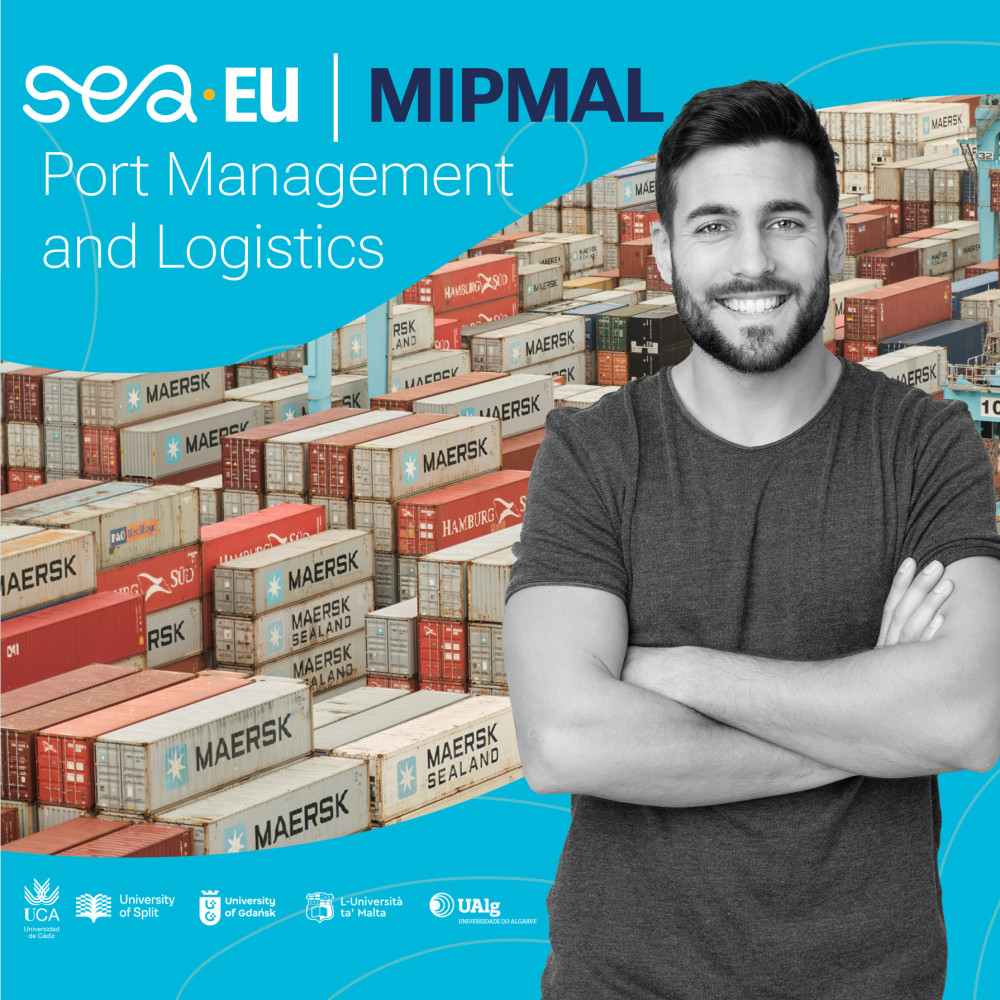MIPMAL - International studies for future leaders in the port and logistics industry
 The joint Master's degree program Port Management and Logistics (MIPMAL) was created in cooperation with ports from all over Europe. This program is a perfect preparation for a career in the international maritime logistics and port management industry.
The joint Master's degree program Port Management and Logistics (MIPMAL) was created in cooperation with ports from all over Europe. This program is a perfect preparation for a career in the international maritime logistics and port management industry.
Thanks to the long-standing cooperation of partner universities of the SEA-EU maritime alliance, the first MIPMAL students will start their studies in 2025!
Our ambition is to equip graduates with the knowledge that will allow them to work in the maritime industry. These various competences have a common denominator: knowledge of the functioning of enterprises that must cooperate with each other - said the coordinator of work on MIPMAL at the University of Gdańsk, dr hab. Przemysław Borkowski, prof. UG. - Our graduates will therefore understand the conditions of a forwarder's operation resulting from what their clients and entities with which they must cooperate do. Similarly, if our graduate finds employment with a port operator, they will understand how logistics entrepreneurs and forwarders operate and what expectations they have.
Both lecturers from SEA-EU partner universities and representatives of companies from the port and logistics industry were involved in preparing the MIPMAL course.
The aim of this cooperation is to create an environment friendly to acquiring knowledge and developing skills, which is based on the best practices and knowledge of the business and academic community.
Each semester of MIPMAL is a unique didactic module dedicated to a different aspect of the maritime logistics industry. Students will first delve into the secrets of port operations, then gain knowledge in the field of logistics and port economy, and in the third semester they will learn the necessary port laws and digitalization processes.
During the last semester, MIPMAL students will have to choose between completing an internship at an external institution or writing a full master's thesis.
Our students will be able to do internships in ports, and the diploma thesis can be carried out in two paths: academic and business - explains dr hab. Przemysław Borkowski, prof. UG. - In the first case, it includes only a short internship in a port enterprise and a diploma thesis with a more research profile, in the second, more time is dedicated to practice and a smaller part to theoretical research. Then the work is practical in nature and will be based on solving a specific problem presented by the business partner.
As part of the preparations for the creation of MIPMAL, the creators of the course met with representatives of the largest ports in Gdansk, Cadiz, Split, Algarve and Malta.
Cooperation with business does not end with support in designing studies, some of the MIPMAL classes will be conducted by experts from the maritime logistics and ports industry. What's more, internships in the last semester can be completed in one of the institutions that got involved in preparing the course.
The MIPMAL study theme is inextricably linked to mobility, transport and international exchange, and students of this course will travel between SEA-EU coastal universities.
Depending on when you start your studies, the first year of your studies will take place at the University of Cadiz or Split, while the second year will be spent at one of the other MIPMAL partners: UG, University of Malta or University of the Algarve.
MIPMAL studies are a gateway to a career in maritime logistics and port management, where demand for qualified specialists is growing. Thanks to the practical path, graduates already have one foot in the maritime economy sector before they receive their diploma.
What are the European University Alliances?
The idea of creating European Universities was born during the meeting of the leaders of the European Union countries in Gothenburg in 2017.
The creation of common study programmes was mentioned as one of the most important goals of this initiative. Less than two years later, in 2019, hundreds of European universities associated in the alliances began work on building universities of the future - based on, among others, mobility, sustainable development and sharing knowledge and good practices.
In 2019, the University of Gdańsk was one of the first Polish universities to join the programme and for 5 years now it has been cooperating with 8 other coastal universities as part of the European alliance SEA-EU



